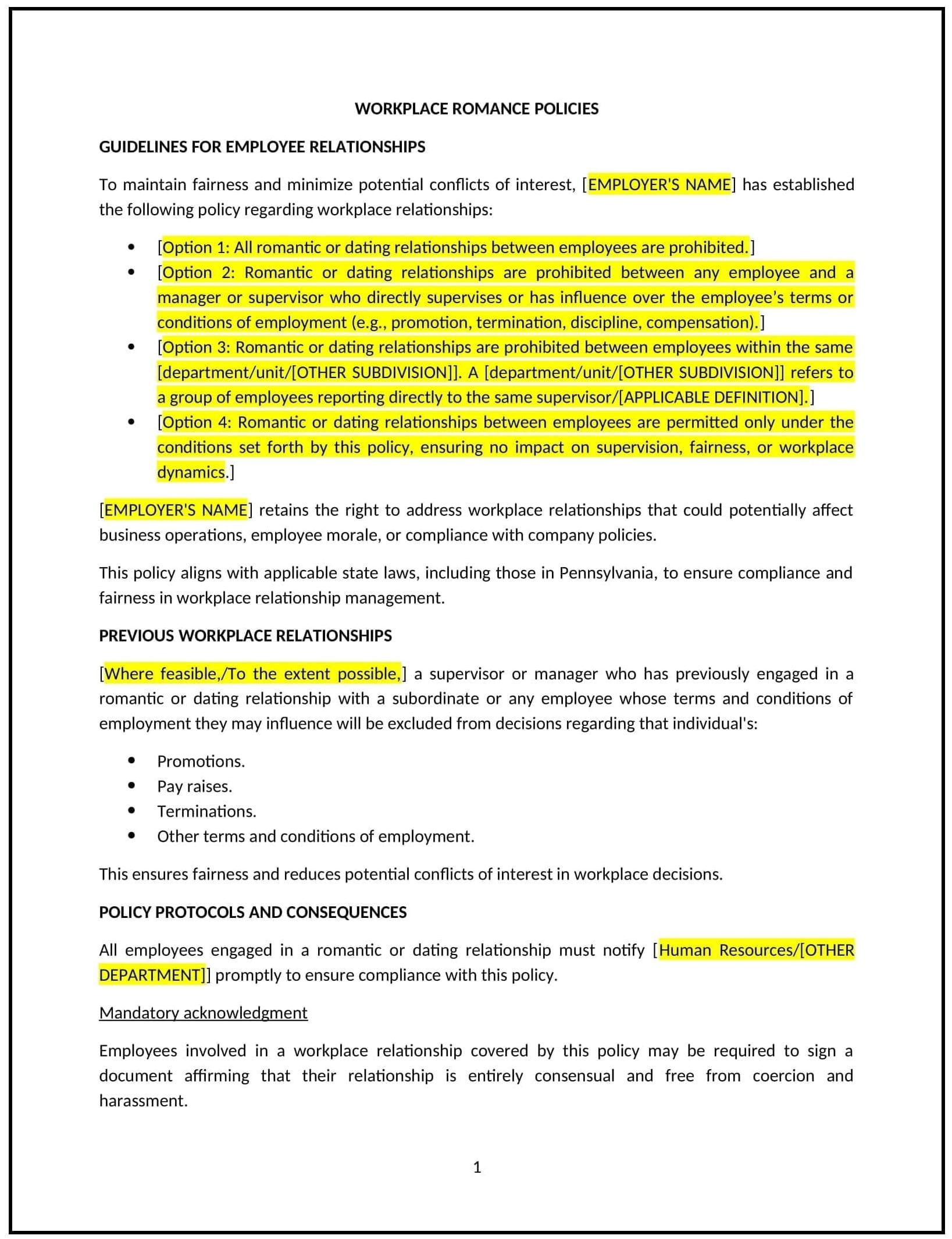Workplace romance policy (Pennsylvania): Free template
Got contracts to review? While you're here for policies, let Cobrief make contract review effortless—start your free review now.

Customize this template for free
Workplace romance policy (Pennsylvania)
This workplace romance policy is designed to help businesses in Pennsylvania establish clear guidelines for managing romantic relationships between employees. By addressing potential conflicts of interest, confidentiality concerns, and reporting procedures, this template helps maintain professionalism while supporting employee rights.
By using this template, businesses can reduce workplace disruptions, mitigate risks, and align with Pennsylvania labor regulations.
How to use this workplace romance policy (Pennsylvania)
- Define workplace relationships: Clearly specify what constitutes a workplace romance and the types of relationships subject to this policy, such as supervisor-subordinate or peer relationships.
- Include disclosure requirements: Outline when and how employees must disclose workplace relationships, especially if there is a potential conflict of interest.
- Address conflict of interest management: Provide steps for resolving situations where a relationship could impact business operations, such as reassignments or adjustments to reporting structures.
- Emphasize confidentiality: Ensure that disclosed relationships are handled discreetly to protect employee privacy.
- Reflect Pennsylvania-specific considerations: Tailor the policy to align with local laws or industry practices relevant to workplace relationships.
Benefits of using a workplace romance policy (Pennsylvania)
A well-structured workplace romance policy supports professionalism and workplace harmony. Here's how it helps:
- Promotes fairness: Establishes consistent guidelines for managing workplace relationships, reducing favoritism or perceived bias.
- Minimizes disruptions: Provides procedures to handle conflicts or issues arising from workplace romances.
- Enhances accountability: Encourages transparency and ensures relationships are disclosed to mitigate potential conflicts of interest.
- Supports compliance: Aligns with Pennsylvania labor laws, minimizing risks related to discrimination or harassment claims.
- Reflects local needs: Considers Pennsylvania-specific workforce dynamics and industry standards.
Tips for using a workplace romance policy (Pennsylvania)
- Communicate the policy: Share the policy with employees during onboarding to ensure everyone understands the guidelines and expectations.
- Provide clear reporting processes: Make it easy for employees to disclose workplace relationships to HR or management without fear of reprisal.
- Train managers: Equip supervisors with the tools to manage situations involving workplace romances professionally and fairly.
- Monitor workplace dynamics: Regularly assess team dynamics to address any potential issues arising from workplace relationships.
- Review periodically: Update the policy to reflect changes in Pennsylvania labor laws or workplace practices.